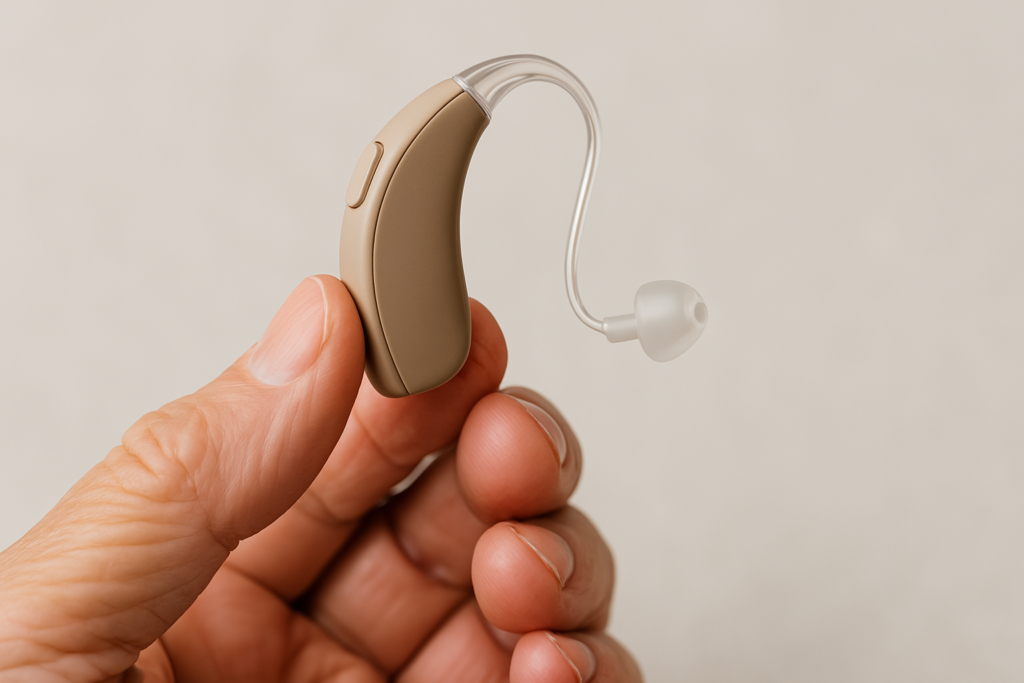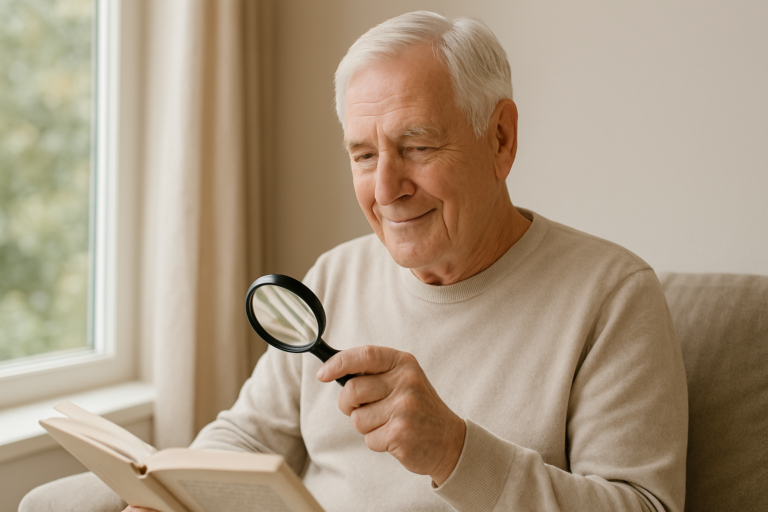Your Guide to Healthy Hearing in Later Life
Hearing connects us to the world – to conversations with family, the sounds of nature, music, and important alerts. As we age, changes in our hearing are very common, affecting millions of seniors. Ignoring hearing loss can lead to feelings of isolation, frustration, and can even impact safety and cognitive health.
Welcome to the Ear Care hub at Elderly Care First. Here, we provide clear, supportive information for seniors (65+) and caregivers about understanding age-related hearing loss, exploring solutions like hearing aids, and maintaining overall ear health. Our goal is to empower you with knowledge to stay connected and engaged.
Understanding Age-Related Hearing Loss (Presbycusis)
The most common type of hearing loss in older adults is called
Presbycusis (pronounced press-bih-KYOO-sis). This is typically a gradual decline in hearing that happens as we age, often affecting both ears equally. It usually makes it harder to hear higher-pitched sounds (like birdsong or children’s voices) and can make understanding speech difficult, especially in noisy environments.
- Learn the signs: Future Signs of Hearing Loss Article (coming soon)
While presbycusis is common, it’s not something you just have to “live with.” Recognizing the signs and seeking help can make a significant difference.
Other Common Ear Issues in Seniors
Besides gradual hearing loss, other ear-related issues can affect seniors:
- Tinnitus: This is the perception of sound (like ringing, buzzing, hissing, or clicking) when no external sound is present. It often accompanies age-related hearing loss but can have other causes. While usually not dangerous, it can be bothersome.
- Learn more: Future Tinnitus Guide
- Earwax Buildup (Cerumen Impaction): While earwax is normal and protective, it can sometimes build up and block the ear canal, causing temporary hearing loss, fullness, or ringing. Improper cleaning methods can often make it worse.
- Learn more: Future Earwax Guide (coming soon)
- Balance Issues (Vertigo/Dizziness): The inner ear plays a crucial role in balance. Conditions affecting the inner ear (like Benign Paroxysmal Positional Vertigo – BPPV, which is common in seniors) can cause dizziness or a spinning sensation (vertigo), increasing the risk of falls.
- Learn more: Future Vertigo Guide (coming soon)
Exploring Hearing Solutions
Fortunately, many effective solutions are available to help manage hearing loss and improve communication:
- Hearing Aids: These small electronic devices amplify sounds, making it easier to hear speech and other environmental noises. They come in various styles (Behind-the-Ear/BTE, Receiver-in-Canal/RIC, In-the-Ear/ITE, Completely-in-Canal/CIC) and technology levels. Over-the-counter (OTC) options are also available now for perceived mild-to-moderate hearing loss.
- Explore hearing aids: Future Hearing Aid Guide (coming soon)
- See recommendations: Recommended Solution Page

- Assistive Listening Devices (ALDs): These devices are designed to help in specific situations. Examples include amplified telephones, TV listening systems (headphones or speakers), and personal amplifiers. They can be used alone or sometimes in conjunction with hearing aids.
- Learn about ALDs: Future Assistive Devices Guide (coming soon)
- See recommendations: Recommended Solution Page
Choosing the right solution often starts with a hearing test and consultation with a hearing healthcare professional.
Protecting Your Hearing & Ear Health

Taking care of your ears throughout life can help preserve your hearing:
- Protect Against Loud Noise: Avoid exposure to excessively loud sounds. Use hearing protection (earplugs or earmuffs) during noisy activities like mowing the lawn, using power tools, or attending loud events.
- Clean Ears Safely: Avoid putting cotton swabs, hairpins, or other objects into your ear canal. This can push wax deeper or injure the eardrum. Let your ears self-clean or ask your doctor about safe removal methods if you suspect buildup. Future Earwax Guide (coming soon)
- Manage Health Conditions: Control conditions like diabetes and high blood pressure, as they can sometimes affect hearing health.
- Be Aware of Ototoxic Medications: Some medications can potentially damage hearing. Discuss any concerns about medication side effects with your doctor or pharmacist.
How to Use This Ear Care Section
This page is your starting point. Use the links provided to explore our detailed guides on specific conditions, solutions like hearing aids, and practical ear care tips. We are constantly adding resources to help you navigate your hearing health journey.
Stay Connected Through Better Hearing
Addressing hearing changes is key to maintaining social connections, safety, and overall well-being. Don’t hesitate to get your hearing checked if you suspect a problem. Many effective solutions can help you hear better and stay engaged with the world around you.
Elderly Care First is committed to providing reliable, easy-to-understand information to support you and your family.







One Comment